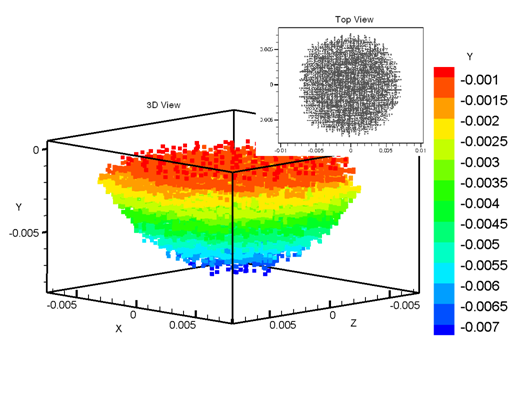My research program is focused on solving problems that involve transport of heat, mass, and momentum in a wide range of applications including film growth for energy-efficient electronic devices, novel material processing for thermal management of electronics and energy storage, and nanomaterials for treatment of cancer.
My team has developed a multi-physics model that considers particle-surface interaction as well as macroscale particle transport in fluid and tissue deformation using finite volume, particle tracking, and meshless methods. This multi-scale approach can be applied to target drug delivery using nanocarriers and nanofabrication with colloidal fluids. I am also interested in novel material processing for energy-efficient electronic devices and low-cost photovoltaic facilities. My research group has developed models to study fluid flow, heat and mass transfer, phase change, chemical reaction kinetics, and electromagnetic heating involved in Chemical Vapor Deposition, Physical Vapor Transport, Directional Solidification, and Liquid Composite Molding.
Our recent effort is focused on the fabrication of hierarchically ordered porous materials using the freeze casting process for thermal applications. Porous metals hold great potential for various thermal applications. In contrast to random porous structures (such as foams), ordered morphologies (like fins) and hierarchical structures (with macro- and micro-pore sizes) have been demonstrated to offer superior thermophysical and transport properties, such as a combination of high effective thermal conductivity, high permeability, and a large specific surface area, for efficient cooling of electronics. A unique aspect of the freeze-casting process is the development of these structural features in bulk material using a cost-effective and scalable process, without necessitating micromachining or sophisticated micro/nanomaterial fabrication.
